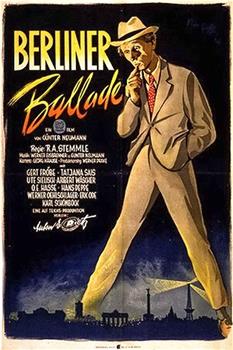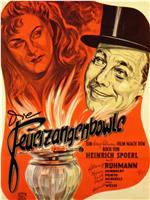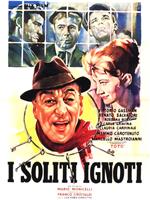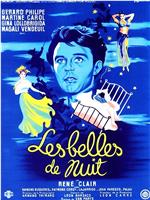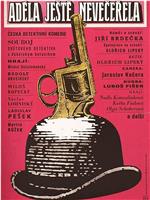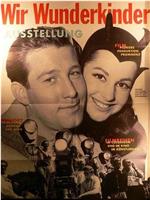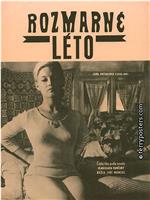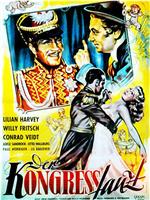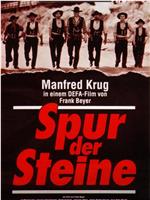柏林叙事曲(1948)
时长:89分钟
上映时间:1948
类型: 喜剧 歌舞
语言:德语 / 英语
地区:德国
导演: 罗伯特·A·施特姆勒
演员: 杰特·弗罗比 Tatjana Sais Ute Sielisch
更新时间:
资源状态:
简介:Thisfilmsisasatiricalparableofpost-warGermanypresentedinretrospectfromtheyear2048.GerdFröbeisthegermanaveragec……更多>>
《柏林叙事曲》下载资源
《柏林叙事曲》相关推荐
- 1
哪吒之魔童闹海吕艳婷、囧森瑟夫
- 2
唐探1900王宝强、刘昊然
- 3
封神第二部:战火西岐黄渤、于适
- 4
老枪祖峰、秦海璐
- 5
僵尸100:在成为僵尸前要做的100件事赤楚卫二、白石麻衣
- 6
角斗士2保罗·麦斯卡、佩德罗·帕斯卡
- 7
老师,别哭董钒、王浩宇
《柏林叙事曲》柏林叙事曲》剧情内容介绍
《柏林叙事曲》
剧情内容介绍
柏林叙事曲原名:Berliner Ballade,
This films is a satirical parable of post-war Germany presented in retrospect from the year 2048. Gerd Fröbe is the german average citizen 'Otto Normalverbraucher' who returns to Berlin after wartime prison experiences. Back at home he finds black marketeers, reactionaries, he seeks work and food and in the end even finds his 'dreamwoman'. (rough n' ready transl.)
《柏林叙事曲》评价
欢乐** 2015-08-26
以2048年貌似科幻的视角切入很新颖,实则通篇是百年之前满目疮痍的柏林**,政治狂热、民生潦倒、怪象环生,以一名普通柏林人的立场讲述如何重建新生,难得的是毫无苦情或说教,用含泪的微笑道尽艰难,几个梦境的段落既好笑又心酸。
LoudCrazyHeart 2020-08-06
时时刻刻地反讽与批判。特别是对于当时刚结束的**形象的讽刺。主角平常愚蠢的行事风格却实实在在的是让战争免于发生的因素。
河原宏 2015-07-16
假借专题片的形式 以100年后的视角来对1948年的柏林进行解说 但又保留故事片的基本特征 以一个人物的生活遭遇为主要线索 充斥大量幽默讽刺 并给出一个乐观的结局 影像上随性自由 富有活力 这些都提供了有别于意大利新现实主义审视战败国社会面貌的视角
YiQiao 2022-02-04
…the presence of death and destruction, the atmosphere of angst in the Nazi era, the conditions of survival after the war were clearly deplored. Or is it not useful to keep in mind the “Film ohne Titel” with its play on genre and satirical view of the post-war situation? //Cf. Hester Baer, When Fantasy Meets Reality. Authorship and Stardom in Rudolf Jugert’s “Film without a Title” (1948), in: Baer, Dismantling (see note 17), **. 49–72
小九儿 2024-08-29
在2024年柏林夏日的尾巴看了这场露天电影,又悲伤又好笑,悲伤大过好笑
丁一 2021-08-20
如果2046不能回到过去,那就在2048年,回到柏林残穹下,在铁皮鼓的伴奏下,看托托与众生相,最后像托尼厄德曼说的——不要忘了幽默感~
vivi 2016-04-27
战后城市小人物,笔触幽默,悲哀的现实。
妄执完王知宛 2015-08-17
中意Normalverbraucher这个姓氏的安排,*。虽然比鲍德里亚提消费社会要早,但主题思想在这部片子里已经讲得十分清楚。加上东西德的历史定位,政治上的调侃也十分露骨。Zusammenfassung:幽默,可爱,歌舞片特别浪漫,尽管笑里都是辛酸。
Spring 2015-07-29
以喜剧形式讲述战后一名普通的柏林人的生活,结合了时下的政治、经济背景与城市**的环境。如何在**和恐惧之上重建生活?最后导演以象征手法和乐观主义精神提出了希望。
pissoff 2024-10-31
能察觉到导演其实对人类还抱有信心才做这番针砭时弊,不然幽默讥讽可以更暗黑一点
